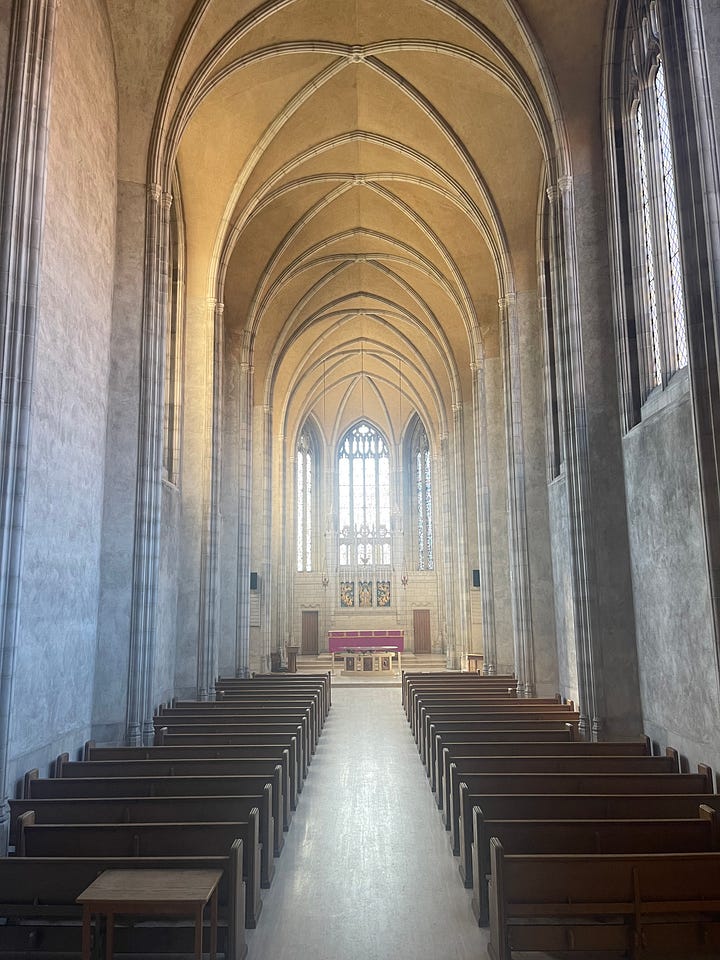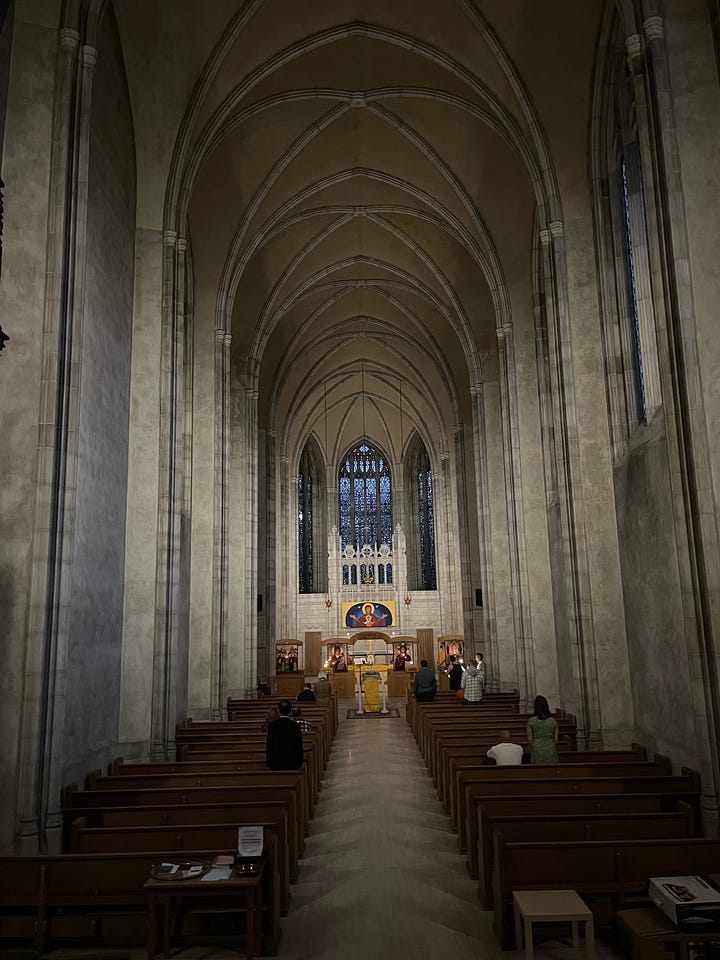On Silence
When your mind is quiet enough, the intuition you've been looking for comes to find you
Silence nurtures our nature, our human nature, and lets us know who we are. Silence can be found, and silence can find you. Silence can be lost and also recovered. But silence can not be imagined, although most people think so. To experience the soul-swelling wonder of silence, you must hear it.
I stop by the chapel on my afternoon walk every day.1


It’s my favorite place, second only to my home, because it’s the only place left in the city that remains untouched by marketing or the influence of people — it’s the only place in the city without noise, literally and figuratively. The chapel is a sanctuary of silence; it’s where I can truly be alone. And I love being alone.
From the silence emerges a calmness, a kind of peace you can feel in your chest and head. When your mind is quiet enough, your heart floats. Then, the answers you look for (about the things you’ve been indecisive about) come to find you. Silence is the act of befriending time: when …


